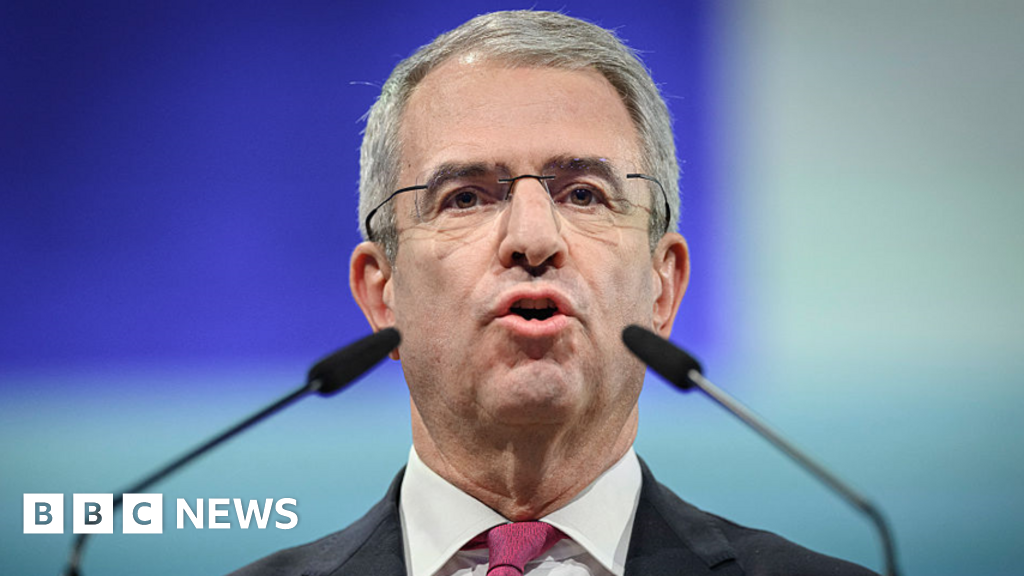Business
New Predictions on Agentic AI Suggest Businesses Need to Be More Cautious

Tech giants have embraced and circulated their AI tools at an unprecedented rate, but there has been little thought with regard to the long-term implications of these tools and how relevant they will be in the long run. A new report from Gartner made some predictions with regard to agentic AI, suggesting that 40% of them may be scrapped by 2027. Major investments have been made to build AI tools in-house or borrow adjacent tech from other businesses, but in many cases, these tools are limited in their capacity and inept at accomplishing what is expected of them.
With the rushed adoption of AI, businesses are unaware of where to take this technology next. From surging business costs with keeping these tools active to the lack of clarity on what to do with these agentic tools, it is possible that businesses will soon come to regret the hasty adoption of tech that doesn’t necessarily benefit them.
Of course, this does not mean a total failure of AI projects, however, companies that don’t want to regret their investments should consider slowing down expenditure and planning ahead for their next step.
Image: Pexels
Agentic AI Predictions for 2027 Suggest Businesses Will Soon Cancel Projects
Gartner, Inc., a leading provider of business insights, recently revealed that “Over 40% of agentic AI projects will be canceled by the end of 2027, due to escalating costs, unclear business value or inadequate risk controls.”
According to the report, most of the agentic AI projects today are “early stage experiments or proof of concepts,” and are being driven by a desire to see what the hype is about without active consideration of how it will be deployed at scale. The challenges that are expected to accompany this deployment remain unexplored, leaving businesses thoroughly unprepared for what is to come.
Gartner conducted a poll of 3,412 webinar attendees, who revealed that 19% of their organizations had already invested heavily in agentic AI, while 42% had made conservative investments. Around 8% had made no investments, and 31% were waiting to see how they could invest in AI.
Everything Is Not What It Seems—Not All AI is Agentic AI
We’ve all experimented with AI tools at one point or another, either to get summarized responses for quick questions or to generate material for work and personal use. Agentic AI refers to a more advanced system of these tools, which are designed to operate autonomously without human supervision. These tools are more capable of sophisticated reasoning and decision making, opening up the potential for a more independent presence at an organization.
Agentic AI tools are expected to be more advanced than their counterparts, however, Gartner believes that many vendors are “agent washing” and making their tools appear more advanced than they actually are. Many are rebranding existing tools to fit the narrative without substantially building up their capabilities, and the reports estimate that only around 130 of the thousands of agentic AI vendors are real.
These misleading tools are convincing businesses to invest in their future potential, and due to a lack of experience with these services, many organizations are falling victim to investments that don’t serve them well.
Some Agentic AI Projects May Be Scrapped by 2027, but Not All of Them Are Ineffective
While the report states that 40% of agentic AI could be canceled by 2027, it also doesn’t presume that such AI tools will become entirely redundant. These services have the genuine potential to revolutionize a business, and if applied effectively, could be a turning point in the capabilities of any organization.
The predictions in the report suggest that at least 15% of day-to-day work decisions could be made autonomously by the agentic AI by 2028. It also indicates that 33% of enterprise software applications could include agentic AI in some form or the other. These numbers aren’t an optimistic estimate but a realistic one. Agentic AI tools are capable of simplifying and furthering work, but they need to be built correctly and applied carefully, with a clear image of their application and ROI before investments are made.
“To get real value from agentic AI, organizations must focus on enterprise productivity, rather than just individual task augmentation,” said Anushree Verma, Senior Director Analyst, Gartner. “They can start by using AI agents when decisions are needed, automation for routine workflows, and assistants for simple retrieval. It’s about driving business value through cost, quality, speed, and scale.”
Plan Ahead and Invest in the Right AI Tools
Agentic AI tools have their advantages, and it can be beneficial for organizations to start exploring potential AI investments right now. That said, it’s important to make an informed decision on the right tools after thoroughly investigating their capabilities and their potential applications in any business. Organizations need to get their employees involved in understanding and exploring these tools, particularly their HR department, to explore how investing in agentic AI can benefit the business.
All investments should include a cost-benefit analysis for long-term use, going beyond the initial expenses to evaluate whether the investment is sustainable. Most agentic AI tools will require some amount of reengineering, training, support, and continued investment into helping them keep up with the times. They are not infallible and require constant investigations to ensure they stay on the intended track.
Many businesses are laying off workers and cutting labor costs to prioritize AI, but this is not a sustainable solution. Regardless of the potential of AI, some human supervision will always be necessary, and as such, organizations will always have to keep workers around—they cannot sink their funds solely into ineffective AI tools in hopes of seeing positive results.
We are still in the early days of setting up agentic AI systems, and while it is good to start familiarizing the business with their use, it is also important to stay wary of their limitations.
What do you think about these agentic AI predictions? Let us know if you agree or disagree with the numbers. Subscribe to The HR Digest for more insights into the ever-evolving landscape of work and employment.
Business
Nestle fires boss after romantic relationship with employee

Nestle has fired its chief executive after just one year in the job because he failed to disclose a “romantic relationship” with a “direct subordinate”.
The Swiss food giant, which makes Kit Kat chocolate bars and Nespresso coffee capsules, said Laurent Freixe has been dimissed with “immediate effect” following an investigation led by Nestle’s chair and lead independent director.
The BBC understands the inquiry was triggered by a report made through the company’s whistleblowing channel.
Nestle chair Paul Bulcke, said: “This was a necessary decision. Nestlé’s values and governance are strong foundations of our company. I thank Laurent for his years of service at Nestlé.”
The relationship was with an employee who is not on the executive board and the investigation began because it represented a conflict of interest, the BBC has learned.
Mr Freixe had been with Nestle for nearly 40 years but stepped up to the global chief executive role last September, replacing Mark Schneider.
Philipp Navratil has been appointed as Mr Freixe’s successor.
Mr Bulcke said the company was “not changing course on strategy and we will not lose pace on performance”.
Business
Reshuffle gymnastics prepare Starmer to walk tricky budget tightrope | Economics

Dan York-Smith, the former senior Treasury official Keir Starmer has appointed as his principal private secretary, is a qualified international gymnastics judge – a skill set that may come in handy as Labour limbers up for the formidable balancing act of Rachel Reeves’s autumn budget.
After a dizzying series of backflips on tax and spending, some of which were blamed squarely on the chancellor, the government is preparing to raise taxes – at the same time as acknowledging that with inflation on the rise again, the public are still in the grip of a cost of living crisis.
As well as York-Smith, who previously coordinated fiscal events at the Treasury and is well liked by colleagues across Whitehall, Starmer has pinched Reeves’s No 2, Darren Jones, to be his own “chief secretary” – a previously nonexistent job. The former Bank of England deputy governor Minouche Shafik, a well-respected economist, will be Starmer’s economic adviser.
Economists and former government advisers welcomed the reshuffle, suggesting it was high time for Starmer to take more interest in the direction of economic policy.
Jonathan Portes, a former senior government economist, said it was always a mistake to subcontract tax and spend entirely to the Treasury. “It is a well-functioning department staffed by people who know what they’re talking about and if it’s not politically challenged by No 10 things go wrong,” he said.
“Because of the way the Treasury works, it’s intellectually predisposed to do things that are not just politically counterproductive but economically counterproductive. You need somebody in No 10 to push back, and that’s in the interests of the government as a whole.”
Tim Leunig, the chief economist at Nesta, who advised Rishi Sunak when he was chancellor, agreed that part of the problem had been a lack of direction from No 10. However, he suggested any number of new appointments would make little difference without a clearer sense of what the prime minister wants.
“I think all this adds up to absolutely nothing, until Keir Starmer decides what he stands for, and what he stands against,” he said. In particular, Leunig said that would mean deciding which groups to single out to bear the brunt of tax rises – which are widely viewed as inevitable, with the Office for Budget Responsibility expected to downgrade its growth forecasts.
“Unless Labour are willing to say: ‘We’re never going to be a good government unless we’re lucky enough to get growth,’ then they’ve got to learn to pick some losers,” he said. Another former Labour adviser said these risks were particularly grave during tough economic times, when the Treasury tends to go into “finance ministry mode” – focusing above all on balancing the books.
However, Labour’s first year in power has underlined the political challenges of either cutting spending or raising revenue – particularly given the manifesto promises they made not to touch key taxes, including income tax.
Business groups have reacted with fury to Reeves’s £25bn increase in employer national insurance contributions, which has been blamed for putting the brakes on hiring and exacerbating inflation, while backbenchers forced the abandonment of £5bn-worth of disability benefit cuts. The removal of the winter fuel allowance from most pensioners was also almost completely reversed after months of damaging criticism.
Memories of previous disastrously received fiscal statements abound – including George Osborne’s “omnishambles” budget and, of course, Liz Truss’s “mini-budget”, much of which subsequently had to be ditched in the face of market chaos. With bond markets already skittish, the pitfalls are obvious.
As one Labour insider put it, the government’s task in the budget – which is still at least 10 weeks off, with no date yet announced – is to “fill a hole, in a way that makes it not look like they’re filling a hole”.
after newsletter promotion
Reeves, meanwhile, has not yet found a replacement for her former chief economic adviser John Van Reenen, who has cut back his role at the Treasury – although she has roped in the pensions minister and wonks’ wonk Torsten Bell to be her wingman on budget prep.
Jones will be succeeded by the safe pair of hands James Murray, moving up from the post of exchequer secretary to the Treasury. Murray’s successor is another graduate of Bell’s former thinktank the Resolution Foundation – the MP for Chipping Barnet, Dan Tomlinson.
Shafik, too, had some involvement at Resolution, serving as one of the commissioners on its landmark Economy 2030 review – although she is better known as an expert on the international economy.
Margaret Thatcher famously used her economic adviser Alan Walters as an intellectual battering ram against the then chancellor, Nigel Lawson, ultimately leading to the latter’s resignation in 1989.
Few at Westminster expect Shafik to play such a divisive role, however. “She’s not like an Alan Walters figure: she’s not an ideological person,” one Labour insider said.
But given the political somersaults required, Portes argues that it will take serious political commitment from the very top of government to make another tax-raising budget stick. “No 10 and No 11 have to argue it out, agree, and then come out and sell it together,” he said. “And Starmer has to own it, not just Reeves.”
Business
Nestlé sacks CEO over ‘undisclosed romantic relationship’ | Nestlé

Nestlé has dismissed its chief executive, Laurent Freixe, after an investigation into an “undisclosed romantic relationship” with a subordinate that was found to have breached its code of business conduct.
The Swiss-headquartered multinational named Philipp Navratil as his replacement.
Nestlé said Freixe’s departure after 40 years at the company followed an investigation overseen by its chair, Paul Bulcke, and lead independent director, Pablo Isla, with the support of outside counsel, into the relationship with a direct subordinate in breach of company’s conduct code.
“This was a necessary decision,” said Bulcke in a statement. “Nestlé’s values and governance are strong foundations of our company. I thank Laurent for his years of service.”
Freixe took over the chief executive role in September last year after Nestlé, which owns consumer goods brands including KitKat chocolate, Häagen-Dazs ice-cream and Nespresso coffee capsules, ousted his predecessor, Mark Schneider.
Bulcke, who Nestlé announced in June is set to step down as chair next year, said Navratil was “recognised for his impressive track record of achieving results in challenging environments”.
He said Freixe’s successor was “renowned for his dynamic presence, he inspires teams and leads with a collaborative, inclusive management style. The board is confident that he will drive our growth plans forward and accelerate efficiency efforts. We are not changing course on strategy and we will not lose pace on performance.”
Navratil began his career with Nestlé in 2001 as an internal auditor. After holding various commercial roles in Central America, he was appointed country manager for Nestlé Honduras in 2009.
He assumed leadership of the coffee and beverage business in Mexico in 2013, and transitioned to Nestlé’s coffee strategic business division in 2020. He moved to Nespresso in July 2024, and joined Nestlé’s executive board on 1 January this year.
In September 2023, the chief executive of the oil multinational BP resigned after failing to reveal relationships with colleagues.
Bernard Looney was subsequently formally dismissed from his one-year notice period for serious misconduct after an investigation by the BP board and its advisers found he had knowingly misled his fellow directors when they sought assurances regarding his disclosure of past relationships and his future behaviour.
after newsletter promotion
The decision meant he was denied more than £32m in pay and share awards. Looney was replaced as CEO by Murray Auchincloss.
BP subsequently introduced a policy under which employees have to disclose intimate relationships with colleagues or risk losing their jobs.
Reuters and Agence France-Presse contributed to this report
-

 Business3 days ago
Business3 days agoThe Guardian view on Trump and the Fed: independence is no substitute for accountability | Editorial
-
Tools & Platforms3 weeks ago
Building Trust in Military AI Starts with Opening the Black Box – War on the Rocks
-

 Ethics & Policy1 month ago
Ethics & Policy1 month agoSDAIA Supports Saudi Arabia’s Leadership in Shaping Global AI Ethics, Policy, and Research – وكالة الأنباء السعودية
-

 Events & Conferences3 months ago
Events & Conferences3 months agoJourney to 1000 models: Scaling Instagram’s recommendation system
-

 Jobs & Careers2 months ago
Jobs & Careers2 months agoMumbai-based Perplexity Alternative Has 60k+ Users Without Funding
-

 Funding & Business2 months ago
Funding & Business2 months agoKayak and Expedia race to build AI travel agents that turn social posts into itineraries
-

 Education2 months ago
Education2 months agoVEX Robotics launches AI-powered classroom robotics system
-

 Podcasts & Talks2 months ago
Podcasts & Talks2 months agoHappy 4th of July! 🎆 Made with Veo 3 in Gemini
-

 Podcasts & Talks2 months ago
Podcasts & Talks2 months agoOpenAI 🤝 @teamganassi
-

 Mergers & Acquisitions2 months ago
Mergers & Acquisitions2 months agoDonald Trump suggests US government review subsidies to Elon Musk’s companies



